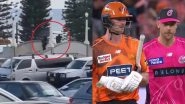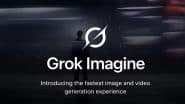London, Jan 24 (PTI) Scotland Yard announced on Friday that it would be putting facial recognition technology into operational use on the streets of London as a tool to assist crime prevention and track down missing persons.
The UK's largest police force said that its use of Live Facial Recognition (LFR) technology will be intelligence-led and deployed to specific locations in London to help tackle serious crime, including serious violence, gun and knife crime, child sexual exploitation and help protect the vulnerable.
The Metropolitan Police Service said LFR would provide police officers with an additional tool to assist them in locating and arresting wanted people.
"This is an important development for the Met and one which is vital in assisting us in bearing down on violence," said Met Police Assistant Commissioner Nick Ephgrave.
"As a modern police force, I believe that we have a duty to use new technologies to keep people safe in London. Independent research has shown that the public support us in this regard. Prior to deployment we will be engaging with our partners and communities at a local level," he said.
The force has stressed that the new tech would not be a case of technology taking over from traditional policing. It is aimed at giving police officers a "prompt" or suggestion of where a particular suspect may be, with the ultimate decision lying with an officer on whether or not to engage.
Ephgrave said: "We are using a tried-and-tested technology, and have taken a considered and transparent approach in order to arrive at this point. Similar technology is already widely used across the UK, in the private sector. Ours has been trialled by our technology teams for use in an operational policing environment.
"Every day, our police officers are briefed about suspects they should look out for; LFR improves the effectiveness of this tactic. Similarly, if it can help locate missing children or vulnerable adults swiftly, and keep them from harm and exploitation, then we have a duty to deploy the technology to do this."
The Met will begin operationally deploying LFR at locations where intelligence suggests the force is most likely to locate serious offenders. Each deployment will have a bespoke "watch list", made up of images of wanted individuals, predominantly those wanted for serious and violent offences.
At a deployment, cameras will be focused on a small, targeted area to scan passers-by. The cameras will be clearly sign-posted and officers deployed to the operation will hand out leaflets about the activity.
The technology, which is a standalone system, is not linked to any other imaging system, such as CCTV or body-worn video.
"We all want to live and work in a city which is safe: the public rightly expect us to use widely available technology to stop criminals. Equally I have to be sure that we have the right safeguards and transparency in place to ensure that we protect people's privacy and human rights. I believe our careful and considered deployment of live facial recognition strikes that balance," added Ephgrave.
Some human rights organisations have raised mass surveillance concerns around the deployment of the technology.
"We are sleepwalking into a surveillance state. If the Met thinks this will slip by on a quiet Friday afternoon they have another think coming," said Clare Collier, Advocacy Director of Liberty.
(The above story is verified and authored by Press Trust of India (PTI) staff. PTI, India’s premier news agency, employs more than 400 journalists and 500 stringers to cover almost every district and small town in India.. The views appearing in the above post do not reflect the opinions of LatestLY)













 Quickly
Quickly












